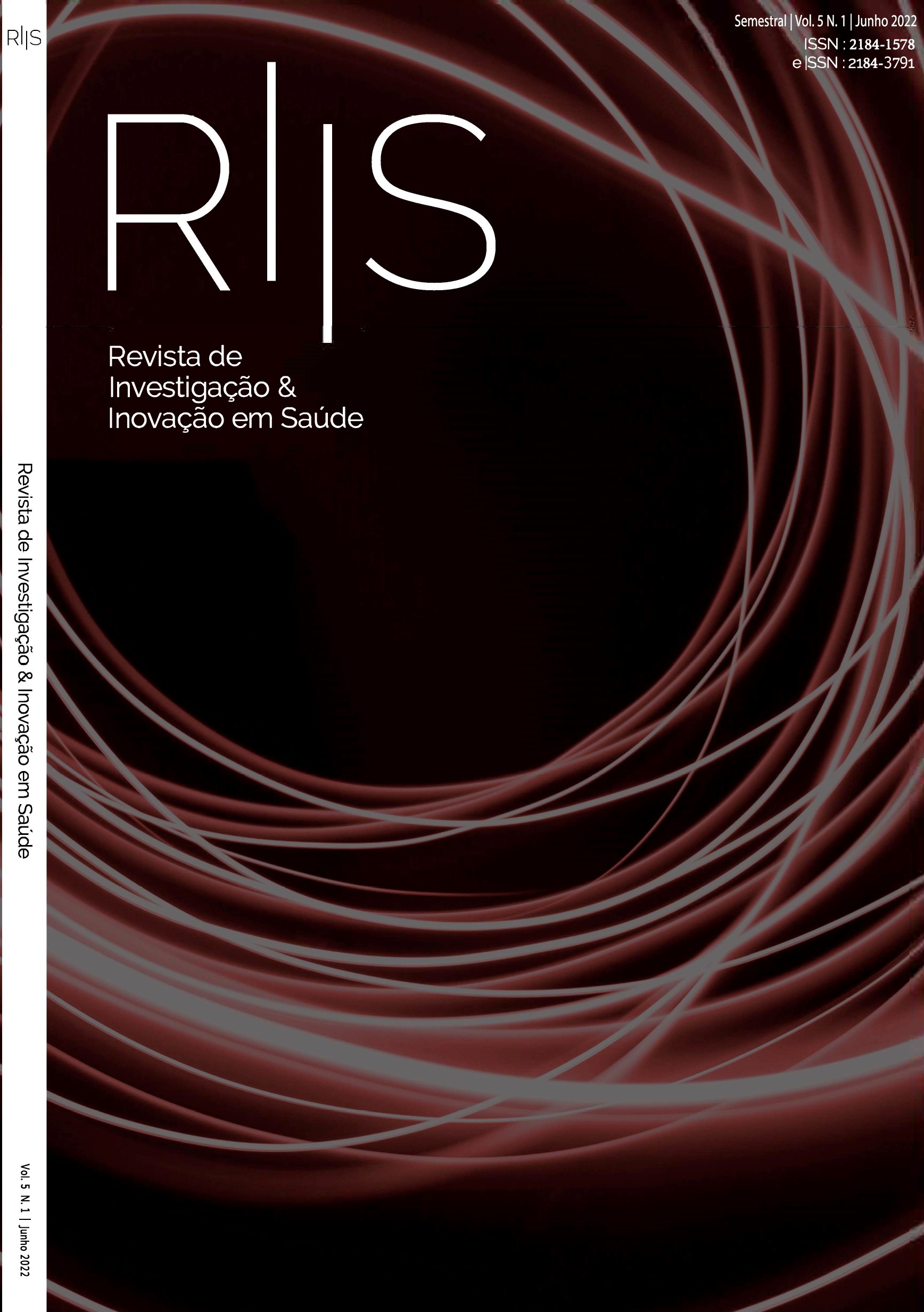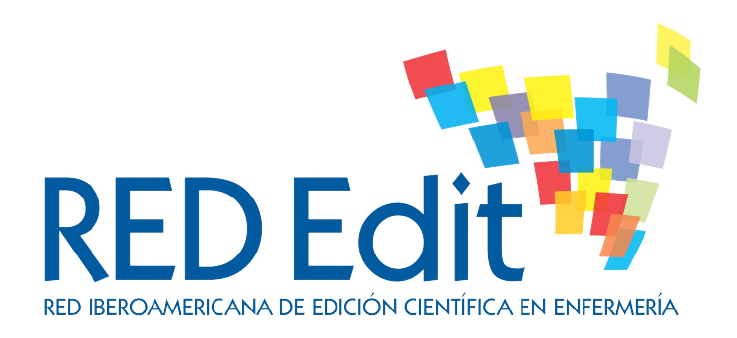Nursing intervention centered on the burdened family caregiver
DOI:
https://doi.org/10.37914/riis.v5i1.197Keywords:
Nursing; Family, Family Caregiver; StressAbstract
Background: caring daily for a dependent elderly family member has an impact on the caregiver's health, who, due to overload, transforms from a healthy person into a sick person. Objectives: to assess the level of family caregiver burden, and to assess the effect of a nursing intervention supported by a psychoeducational program. Methodology: quasi-experimental study. It took place in health units in the Lisbon region, with two groups: experimental group (received a nursing intervention supported by a psychoeducational program) and control group (usual care). Convenience sample of 64 families evaluated before and 2 months after the intervention. Instruments: sociodemographic questionnaire and Zarit scale. Ethical procedures were considered. Results: caregivers had the following characteristics: mean age 63 years, caring for 1-3 years, fashion was being female, married, retired, being a daughter and living with the elderly. The burden of the experimental group at T1 (X= 59.3) decreased after the T2 intervention (X= 53.9), compared to the control group, whose values remained without statistically significant differences T1 (X= 51.9) and T2 (X=51.2). Conclusions: the easy-to-apply nursing intervention helps the caregiver to acquire skills to deal with caregiving, maintaining the social function of caring for the family member.
References
Anjos, K. F., Boery, R. N., Pereira, R., Santos, V. C., Boery, E. N. & Casotti, C. A. (2014). Perfil de cuidadores familiares de idosos no domicílio. Fundam. Care, 6(2), 450-461. DOI: 10.9789/2175-5361.2014v6n2p450 DOI: https://doi.org/10.9789/2175-5361.2014v6n2p450
Alzheimer’s Association (2019). Alzheimer’s Disease Facts and Figures. Alzheimer’s Dement. The journal of the Alzheimer´s Association, 15(3), 321-87. https://doi.org/10.1016/j.jalz.2019.01.010 DOI: https://doi.org/10.1016/j.jalz.2019.01.010
Benner, P. (2001). De Iniciado a Perito. Edições Quarteto.
Carter, B. & McGoldrick, M. (2011). As mudanças no ciclo de vida familiar (2ª ed.). Artemed.
Costa, L. G. F. (2016). Visitando a teoria das transições de Afaf Meleis como suporte teórico para o cuidado de enfermagem. Enfermagem Brasil, 15(3), 137-145. https://doi.org/10.33233/eb.v15i3.181 DOI: https://doi.org/10.33233/eb.v15i3.181
Dantas, P. (2020). A sobrecarga do cuidador informal do idoso dependente e alvo de cuidados de enfermagem de reabilitação na região autónoma da madeira: Um estudo transversal-descritivo. [Tese de Mestrado]. Escola Superior de Enfermagem de S. José de Cluny. http://hdl.handle.net/10400.26/34496
Decreto-Lei nº 101/2006 de 6 de junho (2006). Cria a Rede Nacional de Cuidados Continuados Integrados. Diário da República, I Série, Nº 109, p. 3856-3865.
Ducharme, F., Lebel, P., Lachance, L. & Trudeau, D. (2006). Implementation and effects of an individual stress management intervention for family caregivers of an elderly relative living at home: A mixed research design. Research in Nursing & Health, 29, 427-441. DOI: https://doi.org/10.1002/nur.20152
Ducharme, F., Trudeau, D. & Ward, J. (2008). Manuel de l’intervenant: Gestion du stress: Programme psychoéducatif de gestion du stress destine aux proches-aidants d’un parent âgé à domiicile. Université de Montréal.
Eurocarers/IRCCS_ INRCA (2021). Impact of the COVID-19 outbreak on informal carrers across Europe- Final report. Brussels/Ancona.
Family Caregiver Alliance (Eds.) (2006). Caregiver assessment: Principles, guidelines, and strategies for change. Report from a National Concensus Development Conference (Vol I). National Center on Caregiving at Family Caregiver Alliance.
Figueiredo, D. M. P. (2007). Prestação familiar de cuidados a idosos dependentes com e sem demência. [Tese de Doutoramento]. Universidade de Aveiro. http://hdl.handle.net/10773/4664.
Figueiredo, M. H. (2012). Modelo dinâmico de avaliação e intervenção familiar. Lusociência.
Fonseca, C. & Carvalho, C. (2011). Nós & os laços. Instituto Nacional para a Reabilitação.
Fauth, E. B., Femia, E. E. & Zarit, S. H. (2016). Resistiveness to care during assistance with activities of daily living in non-institutionalized persons with dementia: Associations with informal caregivers stress and well-being. Aging Ment Health, 20(9), 888-898. DOI:10.1080/13607863.2015.1049114. DOI: https://doi.org/10.1080/13607863.2015.1049114
Garcia, T. R., Nóbrega, M. & Cubas, M. (2019). CIPE – Português. Centre for ICNP® Research and Development of the Federal University of Paraiba. International Council of Nurses. https://www.icn.ch/what-we-do/projects/ehealth-icnptm/icnp-download/icnp-translations
Gil, A. P. M. (2010). Heróis do quotidiano. Dinâmicas familiares na dependência. Fundação Calouste Gulbenkian. Fundação para a Ciência e Tecnologia.
Juntunen, K., Salminen, A-L., Tormakangas, T., Tillman, P., Leinonen, K. & Nikander, R. (2018). Perceived burden among spouse, adult child, and parent caregivers. J. Adv Nurs, 74, 2340-2350. DOI: 10.1111/jan.13733 DOI: https://doi.org/10.1111/jan.13733
Lei n.º 100/2019 de 6 de setembro (2019). Aprova o Estatuto do Cuidador Informal. Diário da República, 1.ª série, nº 171, 3-16. Assembleia da República. https://data.dre.pt/eli/lei/100/2019/09/06/p/dre
Meleis, A. I. (2012). Theoretical nursing: development and progress (5 th Edition). Lippincott Williams & Wilkins.
Melo, R., Rua, M., Santos, C., Novais, S., Mota, L., Príncipe, F., & Silva, M., (2021). Intervenção de enfermagem e coping na transição para cuidador familiar. Revista de Investigação & Inovação em Saúde, 4(1), 61-73. https://doi.org/10.37914/riis.v4i1.119 DOI: https://doi.org/10.37914/riis.v4i1.119
Pan, X., Lee, Y. Dye, C. & Theriot, L. (2017). Financial care for older adults with dementia: Characteristics of adult children caregivers. The International Journal of Aging and Human Development, 85(1), 108-122. DOI: https://doi.org/10.1177/0091415016685327
Pires, C., Teixeira, L., Ribeiro, O. & Oliveira, S. (2016). Custo dos Cuidados Informais a Pessoas Idosas da região Norte de Portugal: aplicação do Método do Bem Substituto. Actas de Gerotologia, (1), 1-7. http://hdl.handle.net/10216/82642
PORDATA. (2021). Base de Dados Portugal Contemporâneo. https://www.pordata.pt/Portugal/Indicadores+de+envelhecimento-526-3741
Shah, R., Ali, F. M. Finlay, A. Y. & Salek, M. S. (2021). Family reported outcomes, an unmet need in the management of a patient’s disease: appraisal of the literature. Health Qual Life Outcomes, 19,194, 1-35. https://doi.org/10.1186/s12955-021-01819-4 DOI: https://doi.org/10.1186/s12955-021-01819-4
Sequeira, C. (2010). Adaptação e validação da Escala de Sobrecarga do cuidador de Zarit. Referência, 12(3), 9-16.
Scapini, A. I. N. & Luna, I. J. (2019). Mudanças na comunicação ao longo da terapia de abordagem sistêmica: um estudo de caso. Estudos Interdisciplinares em Psicologia, 10(2), 210-225. DOI: 10.5433/2236-6407.2019v10n2p210 DOI: https://doi.org/10.5433/2236-6407.2019v10n2p210
Teles, S., Ferreira, A., Seeher, K., Fréel, S. & Paúl, C. (2020). Online training and support program (iSupport) for informal dementia caregivers: protocol for an intervention study in Portugal. BMC Geriatrics, 20(10), 1-13. https://doi.org/10.1186/s12877-019-1364-z DOI: https://doi.org/10.1186/s12877-019-1364-z
Wright, L. & Leahey, M. (2019). Nurses and Families: A Guide to Family Assessment and Intervention (7 th Ed.). F. A. Davis Company.
Downloads
Published
How to Cite
Issue
Section
License
Copyright (c) 2022 Fátima Rodrigues, Laura Viegas

This work is licensed under a Creative Commons Attribution 4.0 International License.















